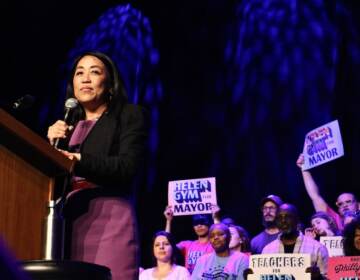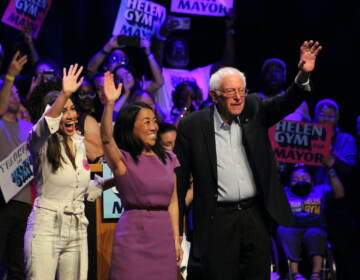Helen Gym, local activists take the presidential stage at Netroots Nation convention
This year, the Netroots Nation conference got local, thanks to City Councilmember-at-large Helen Gym and local community leaders.
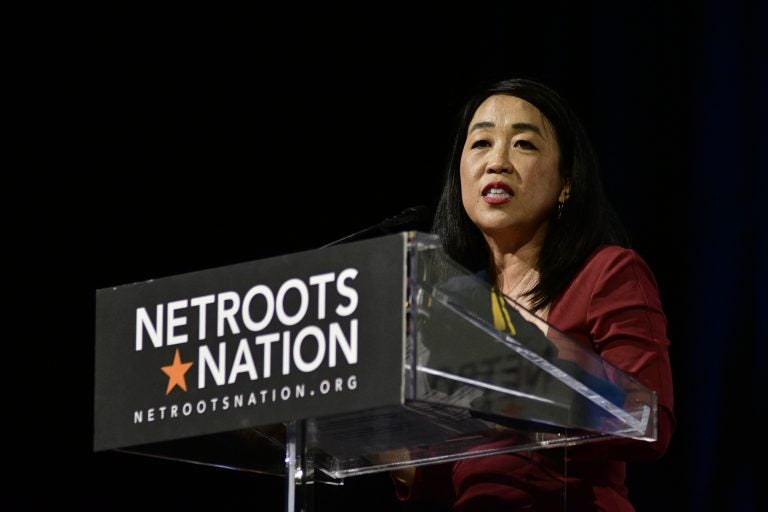
Councilmember Helen Gym takes the stage ahead of the Netroots Nation presidential candidate forum at the Convention Center in Philadelphia on July 13, 2019. (Bastiaan Slabbers for WHYY)
At a progressive political conference like Netroots Nation, it’s normal to think that a Q&A with presidential candidates would focus on the issues at the heart of this election: immigration, climate change and reproductive rights.
Of the more than 20 Democratic presidential candidates, former Housing and Urban Development Secretary Julián Castro, Sen. Kirsten Gillibrand (D-N.Y.), Washington Gov. Jay Inslee and Sen. Elizabeth Warren (D-Mass.), spoke on Saturday at Netroots’ 2020 candidate keynote.
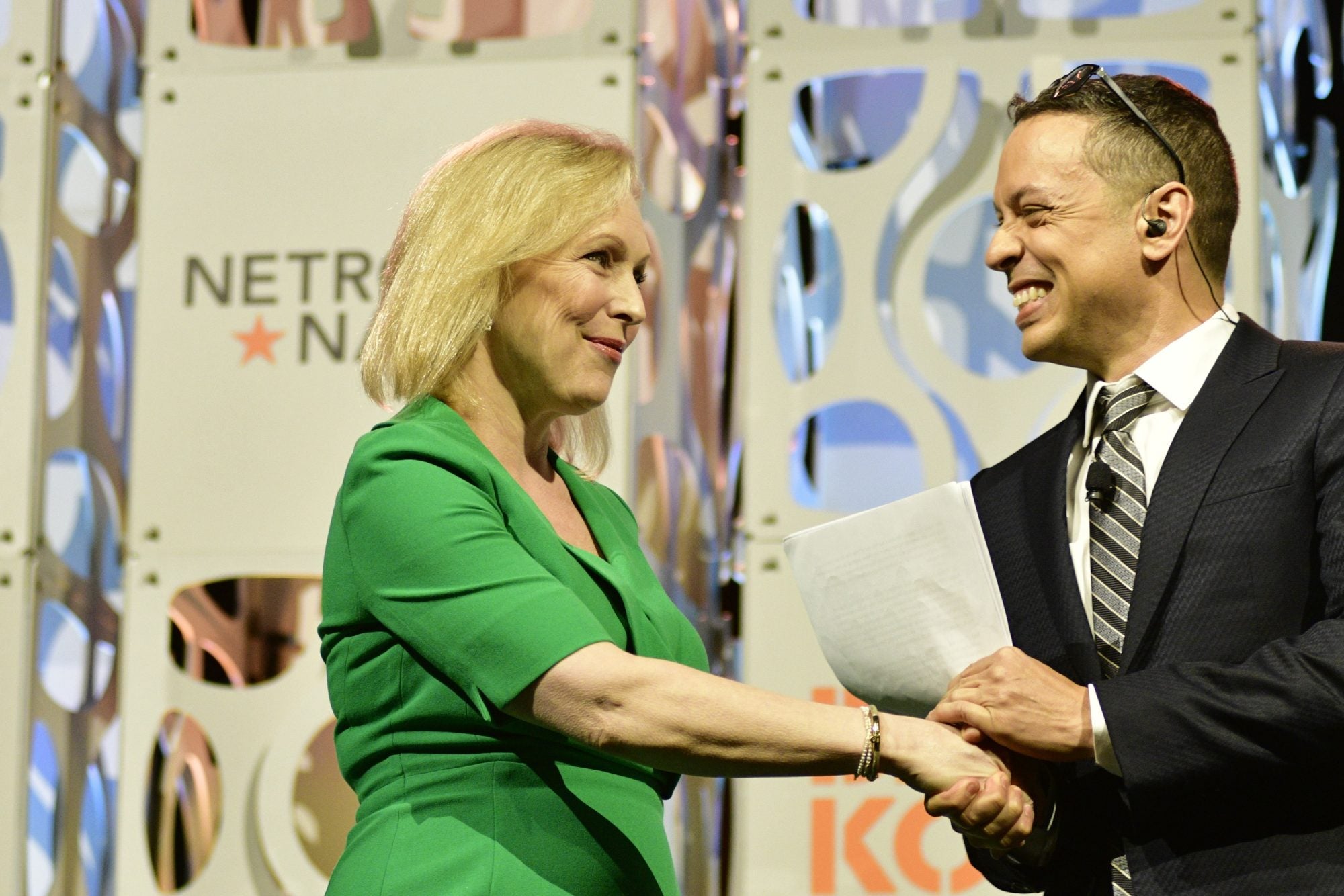
But this year, Netroots — which drew 3,000 people to the Pennsylvania Convention Center this weekend — got local, thanks to City Councilmember-at-large Helen Gym and local community leaders.
Gym, who came in first among a crowded race for five city council-at-large seats during Philadelphia’s May political primary, delivered a powerful speech prior to the presidential Q&A about her uphill battle to change the political game in City Hall.
She told the hundreds of community and political organizers in attendance about the ways she helped push change — like abolishing the state-run School Reform Commission for the Philadelphia school district and passing the ambitious Fair Workweek Law.
“So what does it mean for these movements, for education justice, for immigrant rights and criminal justice reform to take office?” Gym said. “Are our solutions impractical or unworkable as our critics would loudly declare? Well you know what, it turns out we became one of the most effective political and social forces in the city in a generation.”
But along with her praise for social change in Philadelphia — Gym was also quick to make her criticism clear, too. She said she was looking forward to hearing what the candidates had to say but that they’d better cover the issues that matter, like ending poverty and making Medicare accessible for all.
“And stop private equity from bankrupting our health system and profiting off of selling our hospitals like Hahnemann,” Gym said. “And I’ll say this, that message is not just to Trump, that’s to our Democratic governor and our legislators as well. You will not be complicit.”
As she walked off stage, Gym held up a t-shirt that read “Save Hahnemann” — a reference to the soon-to-be-shuttered Hahnemann University Hospital that may close its emergency room as soon as next week.
Gym’s political moment caught the attention of many Netroots attendees, who cheered almost as much for her as they did for Elizabeth Warren who received a standing ovation when she came on stage.
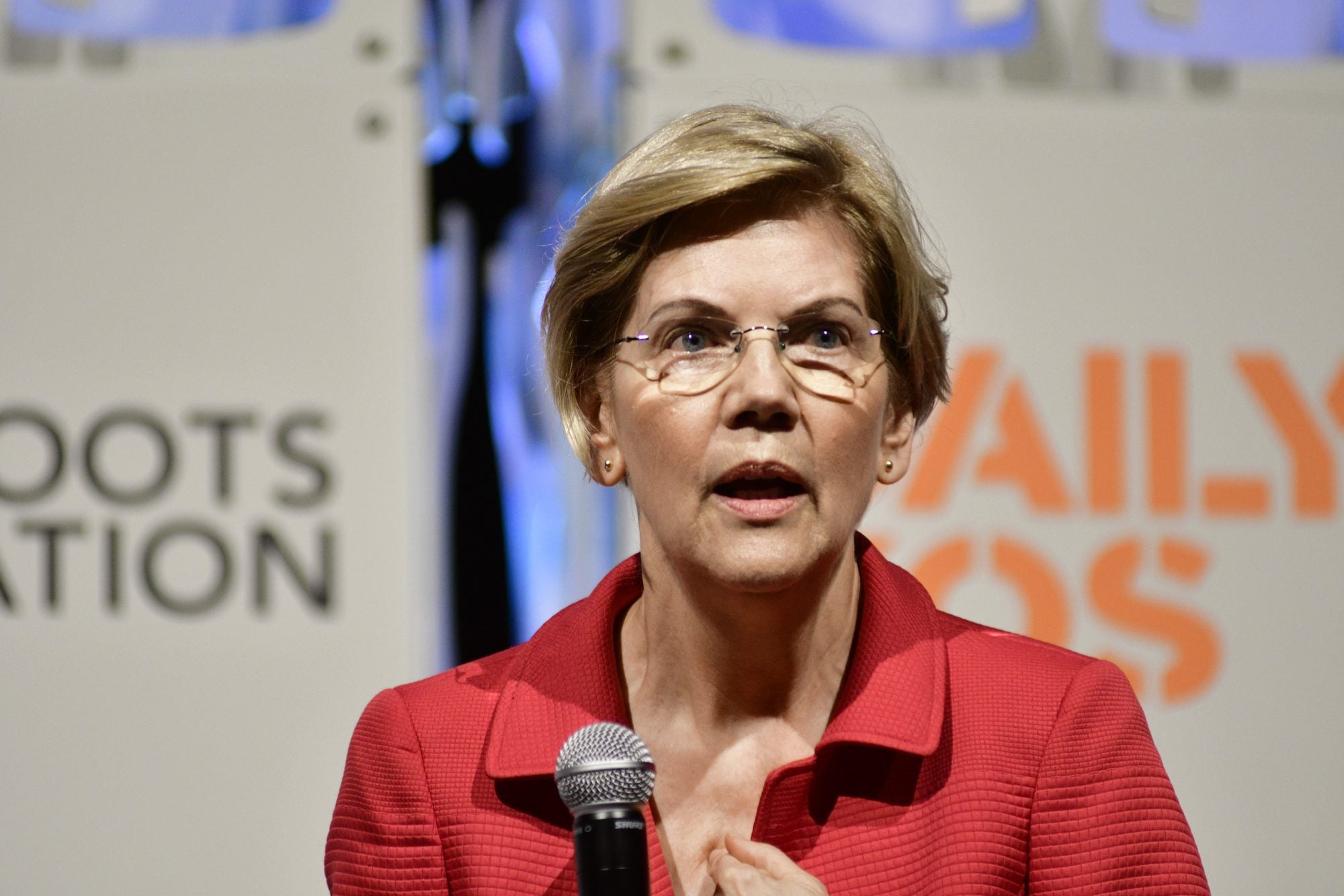
Moderators Cheryl Contee and Markos Moulitsas asked Warren about breaking up big tech companies like Amazon and Facebook — but they also gave local community organizers and activists the chance to ask the candidates questions about local issues.
Hannah Sassaman, the policy director for the local nonprofit Media Mobilizing Project, asked Warren about Philly’s controversial plan to replace the cash bail system with a computerized risk assessment algorithm that would predict who is safe or unsafe to be released pre-trial.
“We need to get rid of the cash bail system,” Warren said. “But we can’t replace it with another system that treats blacks and whites differently.”
“Because here is the problem, you put in a bunch of data that have already been influenced by race and by gender, by age, you put those into the system and surprise surprise…that is exactly what comes out of the system on the other side,” Warren added.
Although Warren was the most revered candidate at Netroots — other candidates in attendance also had their moment to discuss how they would make the quality of life better for everyday Americans.
Take Munira Edens, a community organizer with One Pennsylvania. She’s lived in every section of the city and has seen the housing crisis in Philadelphia firsthand.
“The housing crisis looks like developers moving and doubling my neighbor’s rent,” Edens said. “It looks like black and brown people from my community being forced to move out of their homes because they can’t afford their property taxes.”
Edens asked Julian Castro — who served as HUD secretary under President Barack Obama — what policies he’d put in place to address the housing crisis, which is disproportionately affecting people of color.
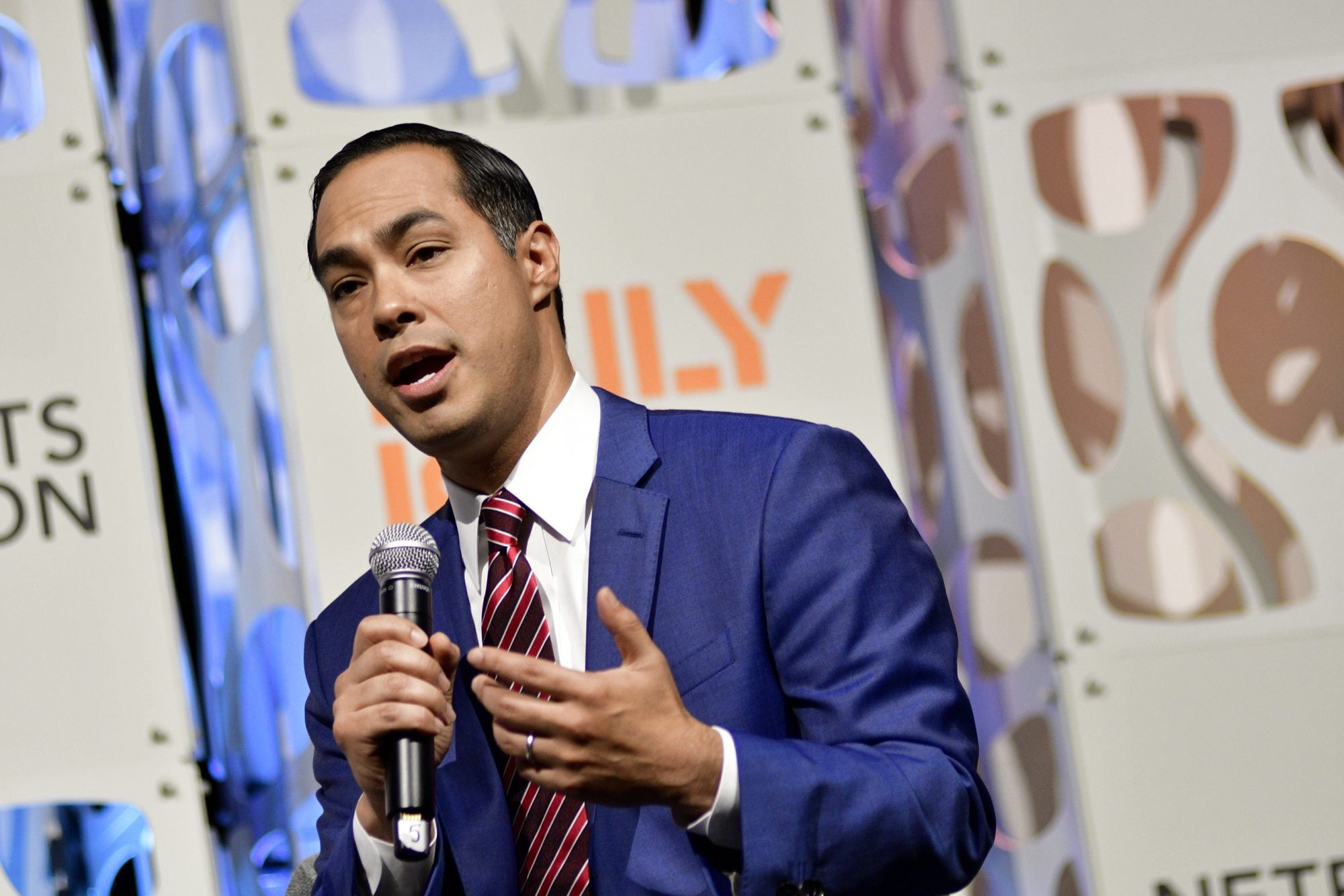
Castro responded by saying he thinks housing is a human right. He discussed his plans to implement a housing choice voucher for people who make less than 50% of the area median income. He also proposed legislation that would prohibit landlords from discriminating against people who have a choice voucher.
“Too often times people who have a voucher are not able to get the housing they need because the landlord still believes bad things about Section 8, about the folks that are on that program,” Castro said. “We would legislate against that.”
Gillibrand and Inslee also answered questions about unemployment and reproductive rights. Prior to the keynote, Inslee visited Fairmount Park and met with members of Philly Thrive — an environmental justice group that has pushed to close the Philadelphia Energy Solutions refinery that caught fire last month.
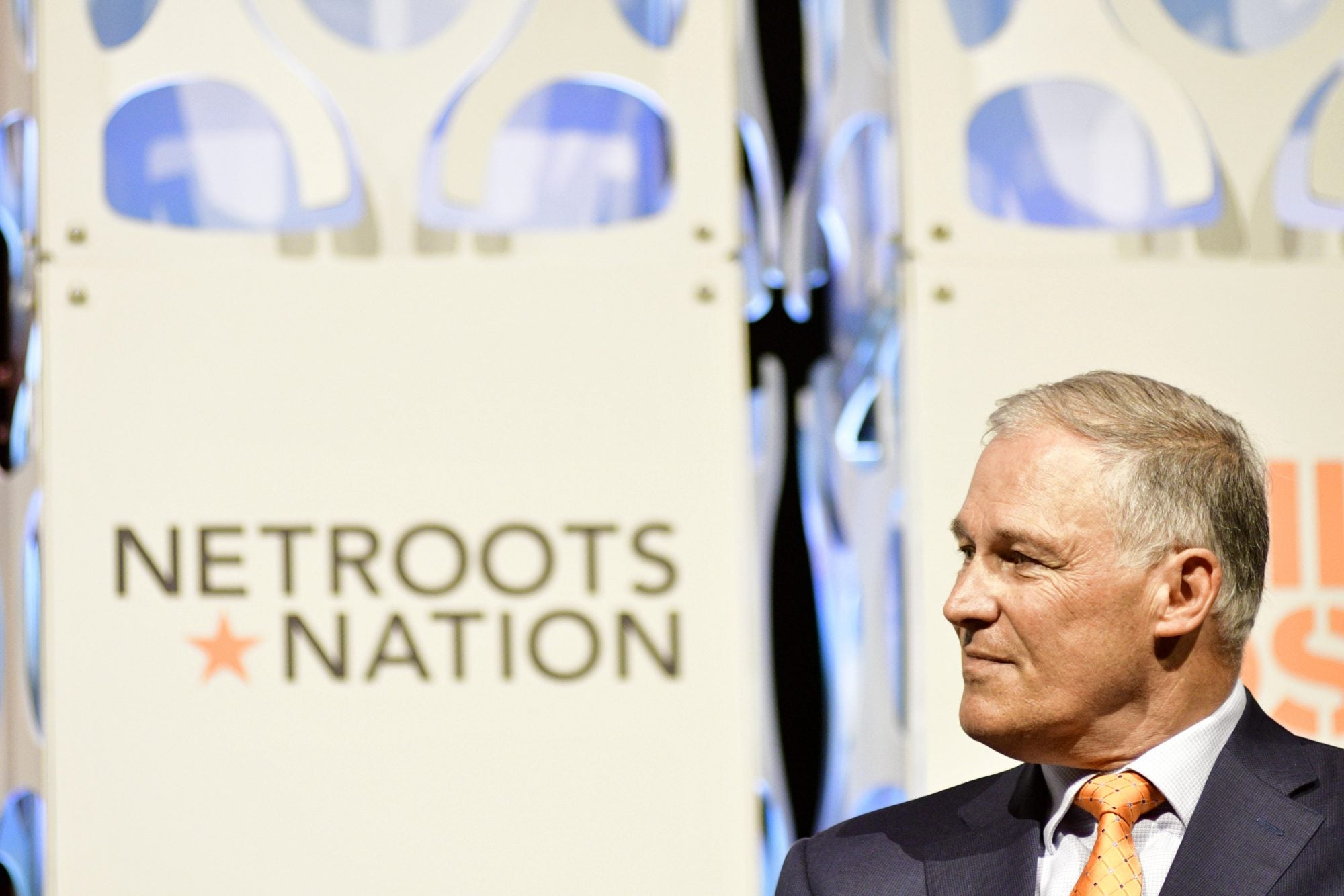
WHYY is your source for fact-based, in-depth journalism and information. As a nonprofit organization, we rely on financial support from readers like you. Please give today.


